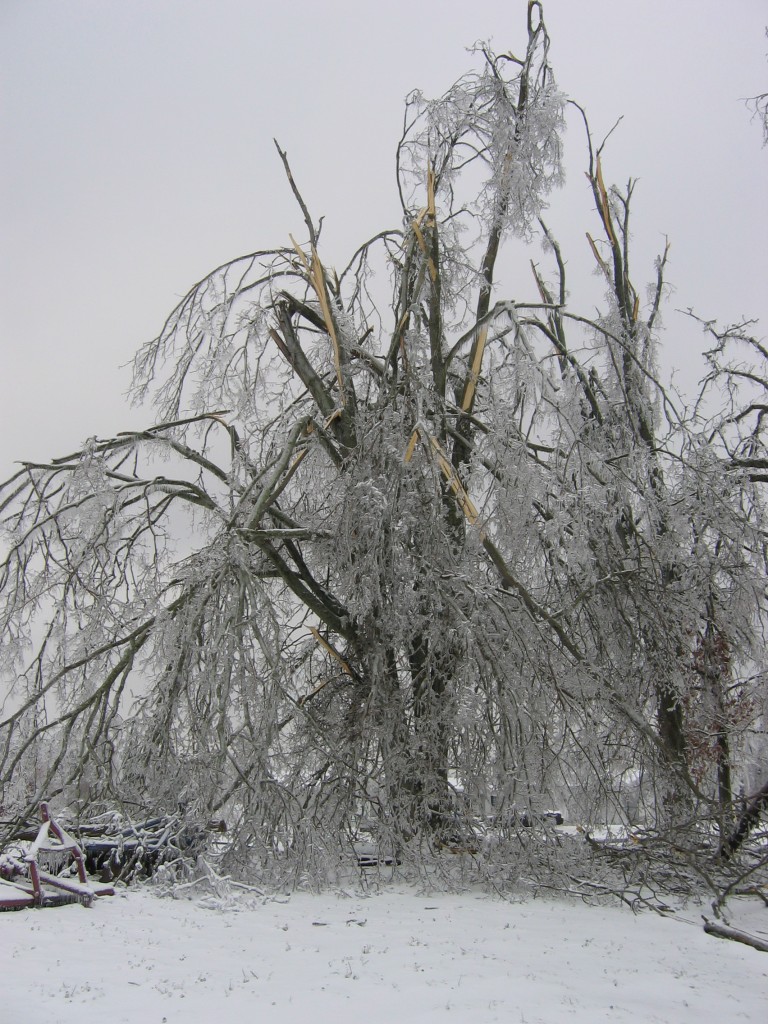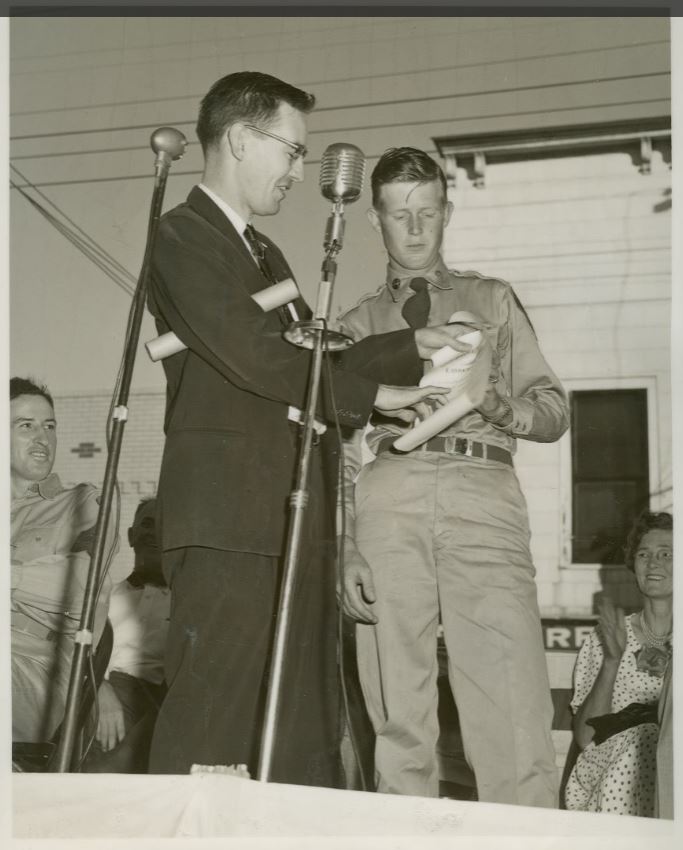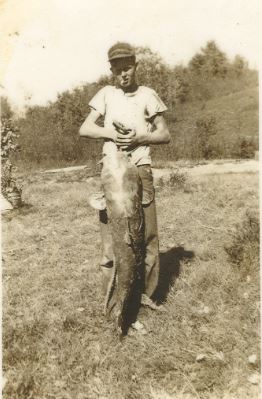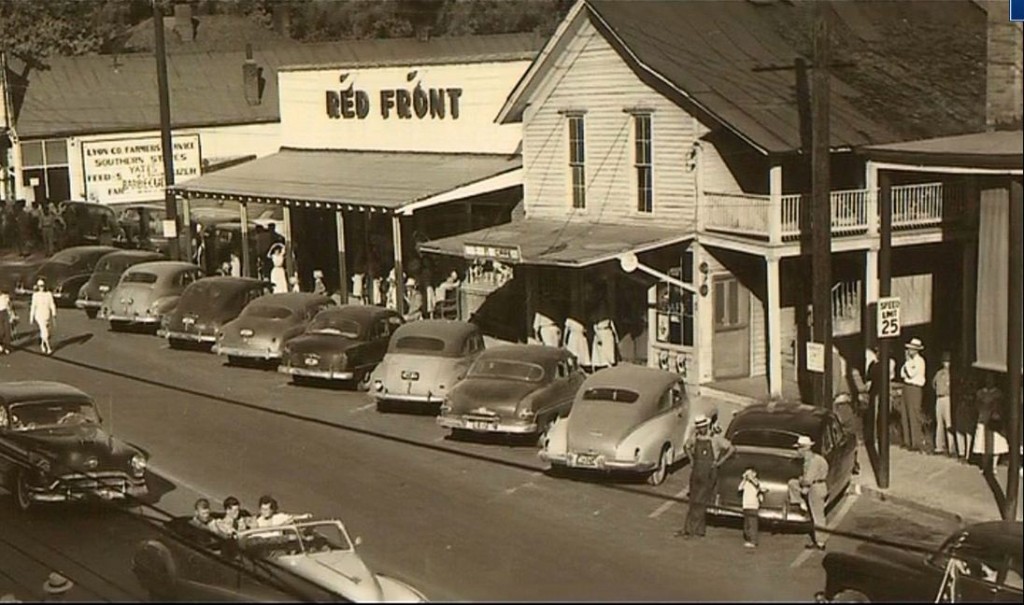On the evening of December 10, 2021, an EF4 tornado blasted through parts of western Kentucky. Not since the Great Ice Storm of 2009 has our area taken such a devastating hit. Those of us untouched by the tornado watched helplessly as weather authorities pleaded for residents in one town after another to take shelter. “This is a tornado emergency,” they implored people. “Get to your safe place NOW.” Unfortunately for many, their shelters couldn’t withstand the nearly 200 miles per hour winds. One week later and the death toll stands at 77. It is now the deadliest tornado in Kentucky history.
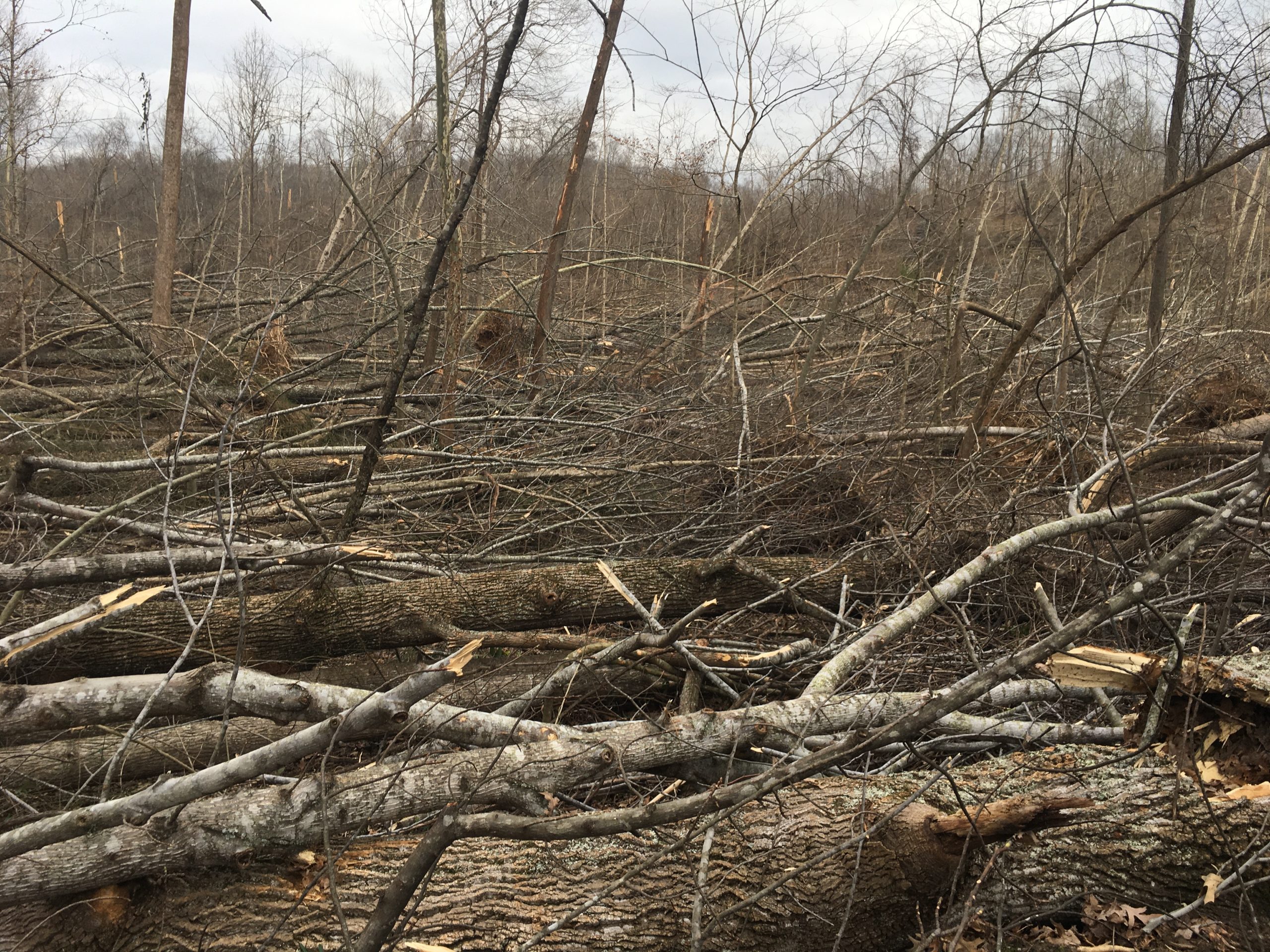
I stayed away from the affected sites for the first several days. Viewing or taking photos of someone else’s misfortune doesn’t sit well with me. I understand the media has to document the tragedy. Their photos are all I really need to see to understand the heartache people are going through. And people need to know what can happen so they can be better prepared for the future.
So, when I did venture out to see for myself, I headed to a secluded rural area that has long been a favorite–Land Between the Lakes. There’s a place there, a backroad really, that is seldom traveled. In summer the trees meet overhead so that it’s always shady and cool. There’s a stream that rarely dries up, and the spot is filled with ferns and birdsong. For me, there is no more peaceful place on earth. I have passed many afternoons in that tranquil spot. And though I have taken photos of it in spring and posted them to social media, I’m always careful not to reveal the location of “my” spot.
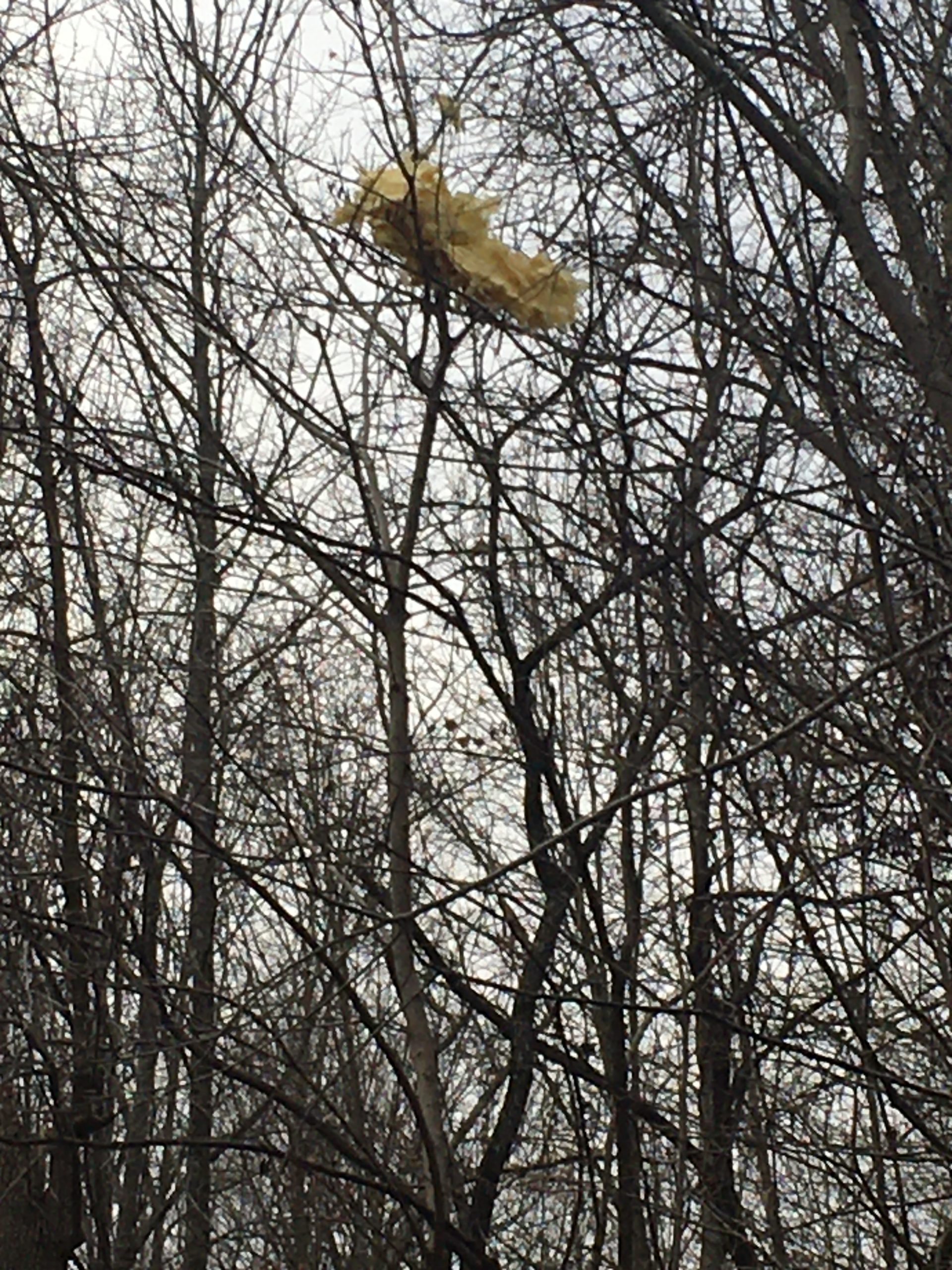
Imagine my shock when my worst fears were realized. Suddenly, around a bend, the road disappeared under an avalanche of tree trunks. The entire area is oddly light now–there are no trees left standing to block the sun. It is entirely open, laid waste. You can make out the rolling hills now, where before you could only see a few dozen yards into the thick undergrowth. I sat for a few minutes, then snapped some photos. It was eerily quiet. No birds, no sounds of anything moving under all those trees. How many wild animals died in this storm?
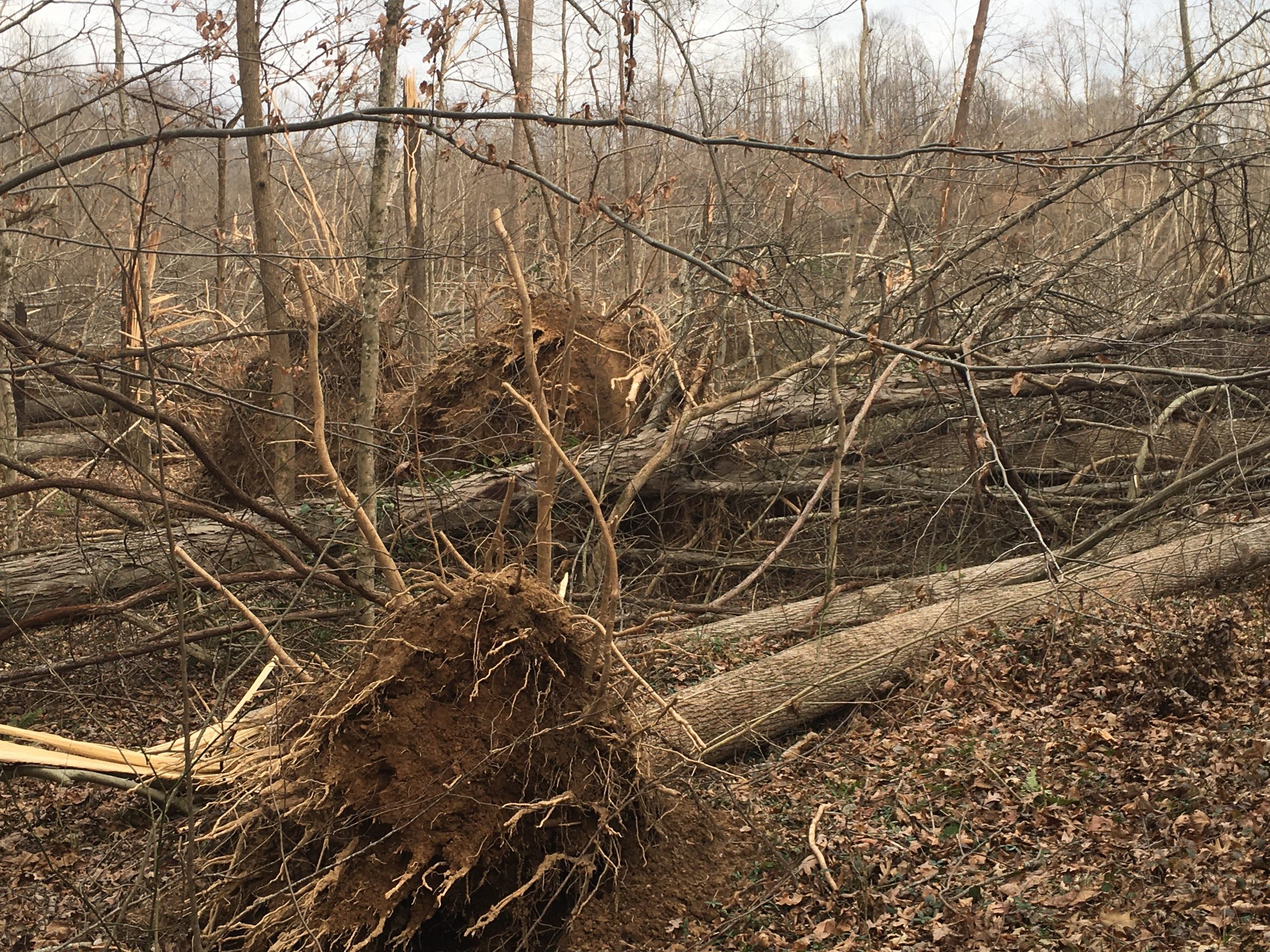
A favorite spot after the tornado went through
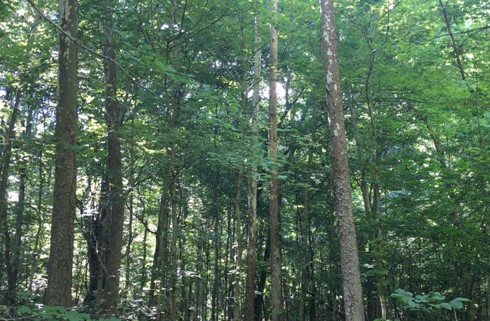
The same spot just a few weeks ago
With nothing to see but downed trees, and further access completely blocked, I decided to go down into the “Trace” to see where the tornado crossed LBL. I didn’t have to go far. Just south of the north station you begin to see debris and hear chain saws. There were many utility workers out clearing trees and working on power lines. For miles on either side of the tornado’s path, there is debris high up in the trees. Sometimes just a plastic bag, more often a twisted piece of corrugated metal or insulation.
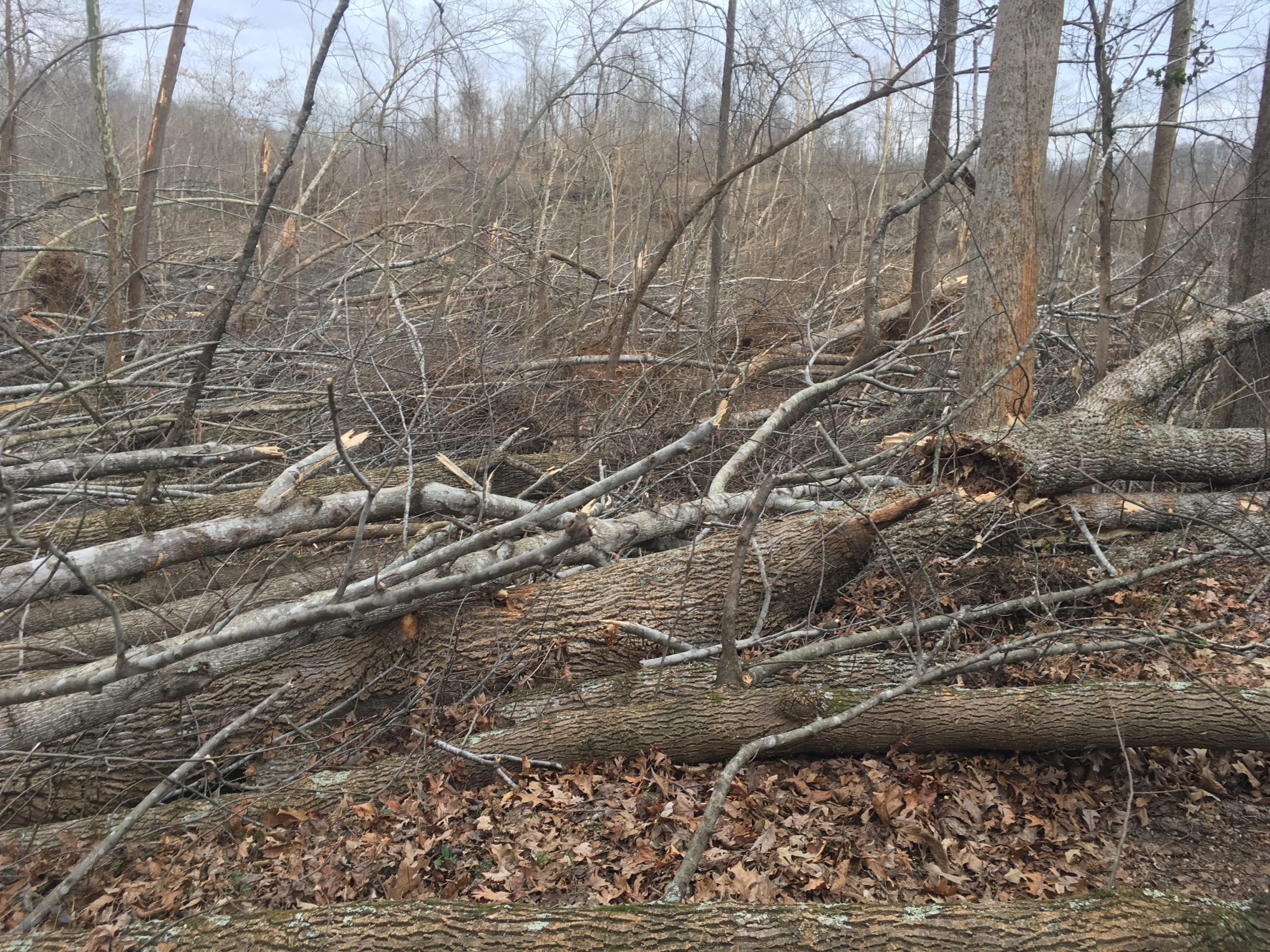
I also saw something unexpected. The shoreline of Kentucky Lake is piled high with all manner of floating trash. Parts of a dock, wood from homes and businesses, styrofoam, and many other things that were unidentifiable bob up and down in the water. God only knows how much debris that couldn’t float is now at the bottom of the lake.
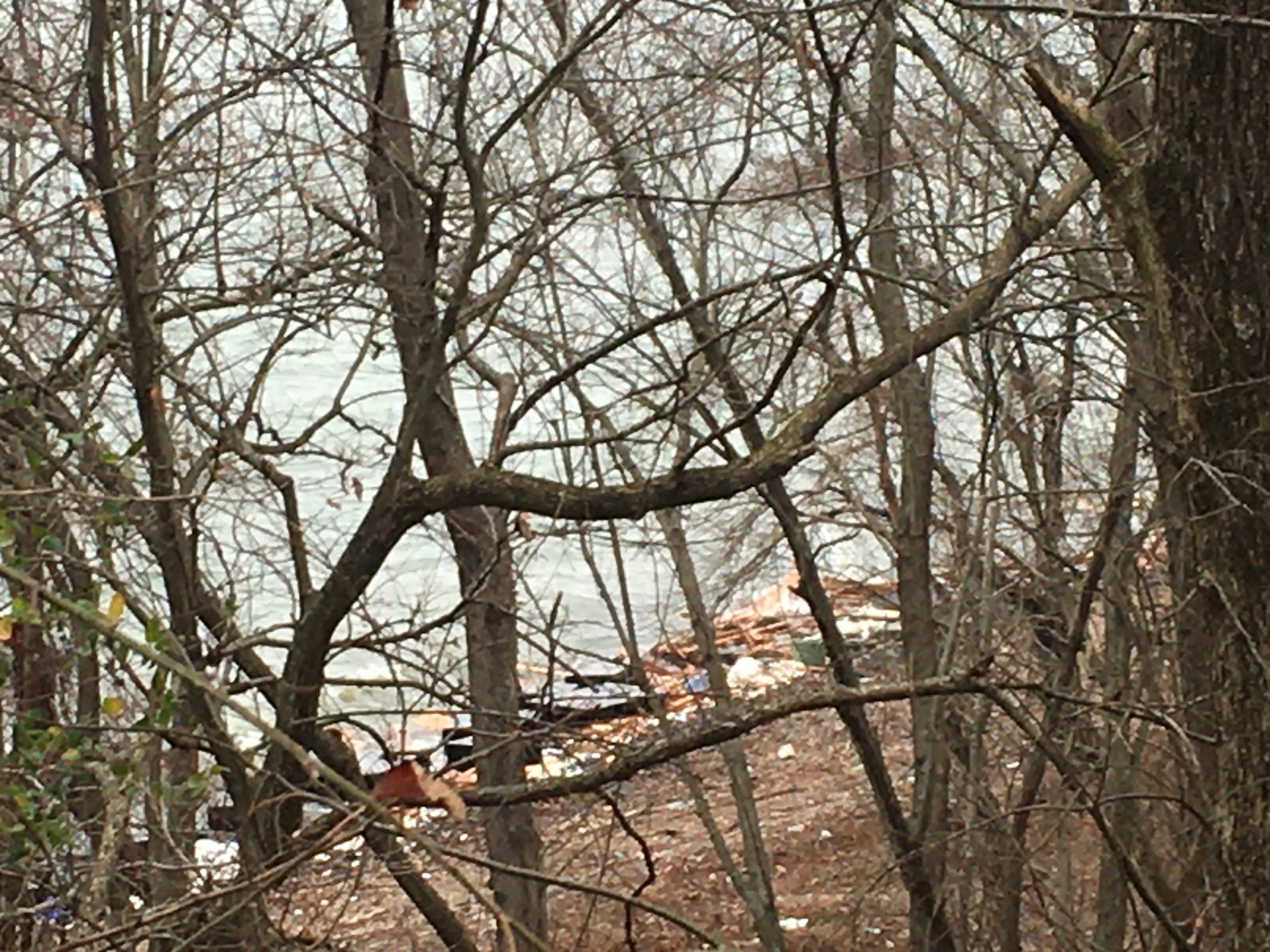
I pulled over to take a couple of photos. A man stood by his truck watching the repairs. He told me his daughter lives in Dawson Springs–another town, like Mayfield, that took a direct hit. She’s okay, though her house is gone. The man (I didn’t get his name) said she told him her neighbor found a hand and part of a leg on his property. She said the leg and hand were obviously not from the same person.
“How awful,” was all I could manage to say. He said property owners were being told to get on their four-wheelers and look all over their property for missing persons. To search the woods, in the tops of trees, and even in the ponds. I just shook my head. The things ordinary people were being asked to do, the things they were seeing, would likely scar them for life. And just how, I wondered, are they going to find people, animals, or lost belongings under all those trees? There are probably things under those piles that will remain lost for a long, long time.
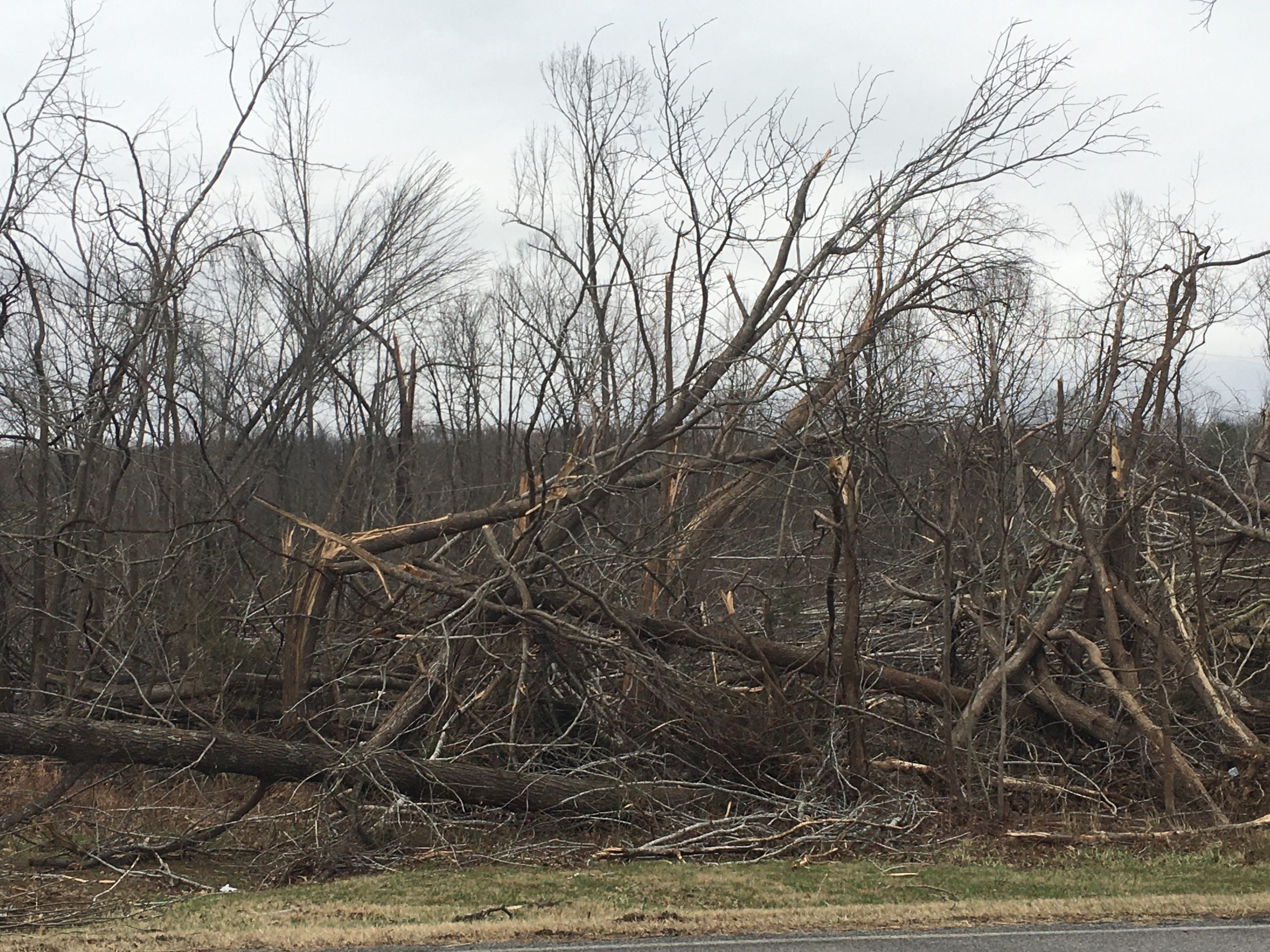
I started to leave but the man had one last horrible story. He said he knew a farmer that had a herd of Black Angus cattle. He had divided the herd before Friday, putting some in one pasture and some in another. The tornado blew all the cattle from both pastures into a spot nearly a mile away. They were found together in that one place–all dead of course. We forget sometimes that it wasn’t only humans affected by the storm.
I thought about everything I had seen and heard during my very brief time at the spot where the tornado crossed LBL. Then I tried to imagine the 225 continuous miles of that destruction. I couldn’t do it. There’s just too much. But I do know this: Just as we recovered from that awful ice storm we will recover from this. There will be scars on the land and scars on the people–both physically and mentally.
To this day I still get nervous if there’s any mention of ice in our forecast. And there are places I hike in LBL where downed trees from the ice storm remain. And now it will be so with tornado watches and warnings. They were always scary. Now they will be downright terrifying.
In time the trauma will pass. We will mourn our dead, rebuild as best we can, and prepare for the next storm.
May it be a long time coming.

